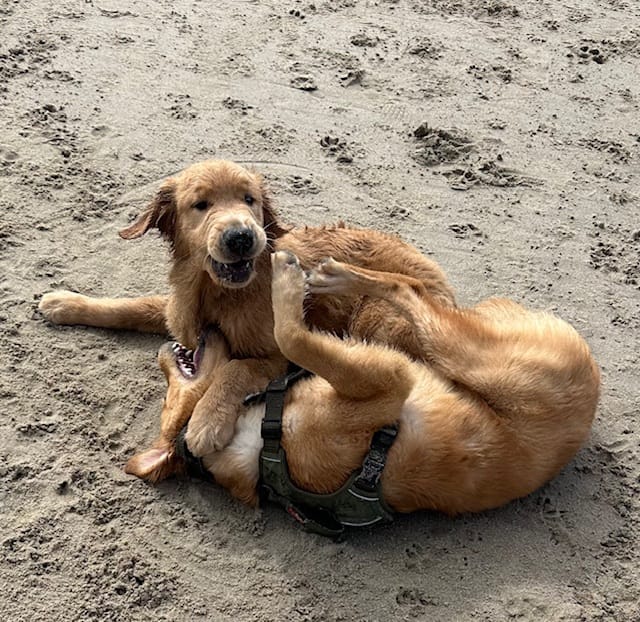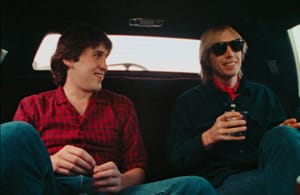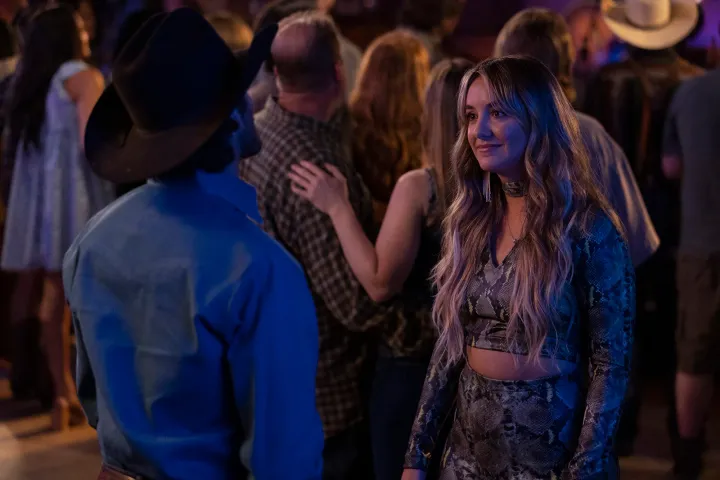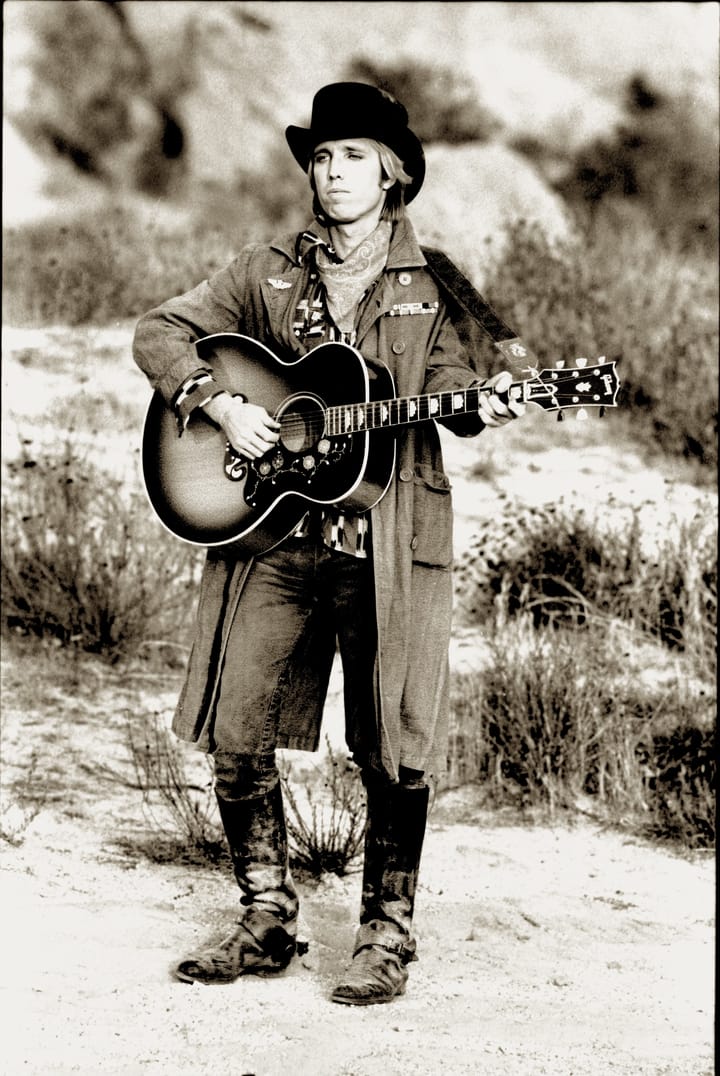Billy Joel: Survival Becomes Revival, With Some Dylanology

If anyone doubted that Billy Joel could and would take complete vocal and emotional command of his new co-written single “Turn the Lights Back On”—his first release to crack the Billboard Hot 100 since his 1997 cover of Dylan’s “To Make You Feel My Love” —his performance of the tune on the Grammy Awards telecast scotched any skepticism.
Garbed in a leather biker’s jacket that recalled his earlier, rode-my-motorcycle in-the-rain days, he wrung rich pathos out of the gently swaying ballad. At times he sent the quietly urgent lyrics forth with a sandpaper growl that touched base with Ray Charles, adding in notes of whisky, leather and an edge of heartbreak. His delivery conveyed a shading of defiance—“I can’t read your mind”--not quite overcoming uncertainty (more on that in a moment). It added up to a performance that proved the recording Academy producers were astute to make his slot the evening’s capstone.
Uncertainty, you say? To what degree that feeling resonates depends on each listener’s interpretation of the new tune’s wording (co-authored, unusually, by Joel and loyal career helpmate Freddy Wexler and two others,) If it’s the story of a romance that may never quite end but may never re-ignite (Billy’s careworn vocal in the verses sounds poised between those possibilities), the label could, as labels do, add it to a collection of love songs:
"I'm late, but I'm here right now /Though I used to be romantic I forgot somehow /Time can make you blind/ But I see you now /As we’re layin’ in the darkness..."
But soon it seems there’s more at play:
"I'm late, but I'm here right now/ And I'm tryin' to find the magic /That we lost somehow /Maybe I was blind /But I see you now…"
The metaphor of sightlessness, of creative sleepwalking in the dark, summons up Joel’s long absence from steady songwriting. From the time he slapped down 1993’s River of Dreams as his last album-length effort, there’s been a dialog with his loyal fan base—will there be new songs one day? Enough of them for a hunk of 33 and 1/3 vinyl? Were the “Famous Last Words” (with a couple singles as exceptions) really his last? The title song all but predicted the current revival: “I try to cross to the opposite side/So I can finally find what I’ve been looking for…”
A career-long teasing of followers’ expectations is hardly unusual in pop and rock pathfinding. David Bowie and Ray Davies both quit (albeit temporarily) onstage. A career is a dialog with those who support it. Followers of Bob Dylan’s career (which, like Joel’s some years later, was almost ended early on by a motorcycle crash) may recall a ntion propounded by more than a few theorists. They reckon that “Positively 4th Street” (that jumbled old strip of storefronts in Greenwich Village, locus of the folk-into-rock club scene, is marked out for purposes of this malediction as a zone of betrayal) was his definitive slagging of the false friends some early folk music lovers proved to be. (“Like A Rolling Stone” is a similar envoi.)
Dylan’s stoic, unreadable expression showed less than his choice of guitar he had strapped on, a Fender Stratocaster, as he stood before a spotlit crowd of 17,000 festival-goers massed on a field—booing even as Mike Bloomfield slashed stinging leads into the electric mix. “I knew Michael was playing a little too loud,” organist Barry Goldberg--like Bloomfield borrowed that very day from Paul Butterfield’s band– later told The Forward,, “but so be it. We were warriors on a mission to back up the leader of our gang.”
You can hear the booing after he opening “Maggie’s Farm” (“I try my best/To be just like I am”) in this clip:
https://www.mprnews.org/story/2015/07/24/music at Newport
A similar moment, In Manchester in May of 1966, came when one concertgoer shouted “Judas!” and Dylan’s recorded response was a slithery sneer of “I don’t believe you”--which of course is part of the tile of a song that’s part tirade, part taunt: "I Don't Believe You (She Acts Like We Never Have Met)"
Though his move towards rock was fully apparent by mid-1965, he was still facing the wrath of the abandoned folkies. Thus “Positively 4th Street”’s payback verses:
You’ve got a lot of nerve
To say you are my friend
When I was down
You just stood there grinning
By the eighth verse, he’s made clear that he was headed in the only direction that would satisfy his art, but there’s still a mournful glimmer of empathy:
No, I do not feel that good
When I see the heartbreaks you embrace
If I was a master thief
Perhaps I’d rob them
As recently as March 1st in Ft. Lauderdale, Dylan trolled a heckler who shouted “Play something we know” by spooling up a defiantly rejiggered take on—and it’s another song that speaks to his followers and has done so since The Band became his landmark folk-rock interpreters--“When I Paint My Masterpiece”:
Though they were at first unacquainted as stablemates at Columbia Records, Dylan’s presence at the label was the key to Billy signing on with label boss Clive Davis. As he told me for the biography he graciously helped with [link below], “Here was this raspy singer who got no radio play,” had no hit singles, had nothing going for him except he was Bob Dylan—and they had the sense to see what that meant….what that meant to me was, This is a career-oriented label.”
The chances of Billy doing an entire album seem slim, despite the best efforts of Freddy Wexler, whose seemingly magical thinking led him to accost Billy with a coherent yet passionate approach to Billy;s own artistry, and dragged him into the studio to essay the vocal on “Turn the Lights Back On.”. Moreover, Wexler—with plenty of input from Joel consigliere Steve Cohen—was the indispensable main creator of a video that cannily captures the look, verve and swagger of a much younger Joel who then advances through decades. As a key fillip, it’s Wexler who plays a recognizably Mafia-corporal, what’s-- it-to-ya?” 70s Billy (with a living-portraiture boost from AI technology)—in the official video:
https://youtu.be/UOf6CMbHPuA?si=btH_LBU0SnE-Emwf
The video’s scattered notebook pages representing the long-awaited song’s genesis, the gilded but empty hall and chandeliered, cavernous corridors of a vintage venue, the gleaming black piano, add up to an effective panoply of a career that for all is crowd-pleasing buoyancy, just enjoyed a surprise re-boot.
If the catalog of 33--and counting?--hits needed stoking, the likely frenzy of Billy’s 100th Garden concert airing on CBS in April, then the Garden run closing out in July, should further accomplish that. One signal that pop music’s freshened embrace of all things Joel was Vulture contributor Christopher Bonano’s second stab (after 2015’s list) at ranking every Joel song—any ccusations of boosting “dad rock” be damned. Granting the added gravel in Joel’s vloice (“he still knows how to make it sound good”), he awards the new song a spot at No. 40, and—as “Scenes From An Italian Restaurant,” from 1977’s The Stranger tops the tally.
Before stating a quibble with Bonanao’s list (his choices are sometimes bold, sometimes quirky—the only real path possible), I’ll cite my dozen track favorites from a Rolling Stone piece that marked the publication of my Joel bio:
In my unranked dozen, “The River of Dreams” is cited, and yet the Spectoresque banger “Say Goodbye To Hollywood”, marking it does a change in lifestyle—perhaps calling us we the audience back to back to Long Island with him--is a steady favorite.
And so finally, Christopher—using the first name as we dapped online after your 2015 picks—I note your usually comprehensive research left you still asking about 1977’s “James” (No. 36), “a small, personal song about a mysterious broken friendship. Wonder who it was?”
Well, Christopher, I got you—please turn to pages 40-43 of Billy Joel: The Definitive Biography” and read about Billy’s bandmate Jim Bosse, guitarist with the primordial Echoes when both were around age 14. James would become an optometrist, and was studying so hard at that that he turned down playing sessions on the for Billy’s 1971 Cold Spring Harbor debut album: “So I passed. One of the major regrets of my life.” Bosse gets how “the lyrics an become a little more biting…for Billy it’s always been music and that’s it…he was giving me his really heartfelt opinion. Billy is the American dream, rags to riches. But under his own terms.”
There’s much more about the Joel canon in the book. As the Dallas Morning News said, “Delivering insights on individual songs that will surprise even the most studied Joel fan.” Or as his hometown paper Newsday called it, “The rollicking story of a Hicksville boy made good.” Readers of this newsletter will quite regularly be able to follow the Piano Man’s doings, and for those who want the true history, carried along by ample quotes from the subject, thanks for the interest and here you are:
https://www.amazon.com/Billy-Joel-Definitive-Fred-Schruers/dp/0804140219





Comments ()